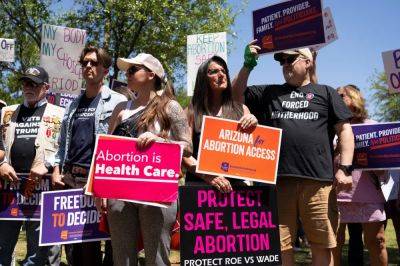5 Takeaways From the Supreme Court Arguments on Idaho’s Abortion Ban
The abortion case before the Supreme Court on Wednesday featured vigorous questioning and comments, particularly by the three liberal justices. At issue is whether Idaho’s near-total ban on abortion is so strict that it violates a federal law requiring emergency care for any patient, including providing abortions for pregnant women in dire situations.
A ruling could reverberate beyond Idaho, to at least half a dozen other states that have similarly restrictive bans.
The implications of the case could also extend beyond abortion, including whether states can legally restrict other types of emergency medical care and whether the federal law opens the door for claims of fetal personhood.
Here are some takeaways:
Idaho’s ban allows abortion to save the life of a pregnant woman, but not to prevent her health from deteriorating. The federal government says it therefore violates the Emergency Medical Treatment and Labor Act, or EMTALA, which was enacted nearly 40 years ago.
EMTALA says that when a patient goes to an emergency room with an urgent medical issue, hospitals must either provide treatment to stabilize the patient or transfer the patient to a medical facility that can, regardless of the patient’s ability to pay. It says that if a state law conflicts with the federal law, the federal law takes precedence.
A lawyer representing Idaho, Joshua Turner, told the Supreme Court that the state does not believe its abortion ban conflicts with the federal law. He said the ban allows emergency departments to provide abortions if a pregnant woman has a medical problem that is likely to lead to her death, not just if she is facing imminent death.







